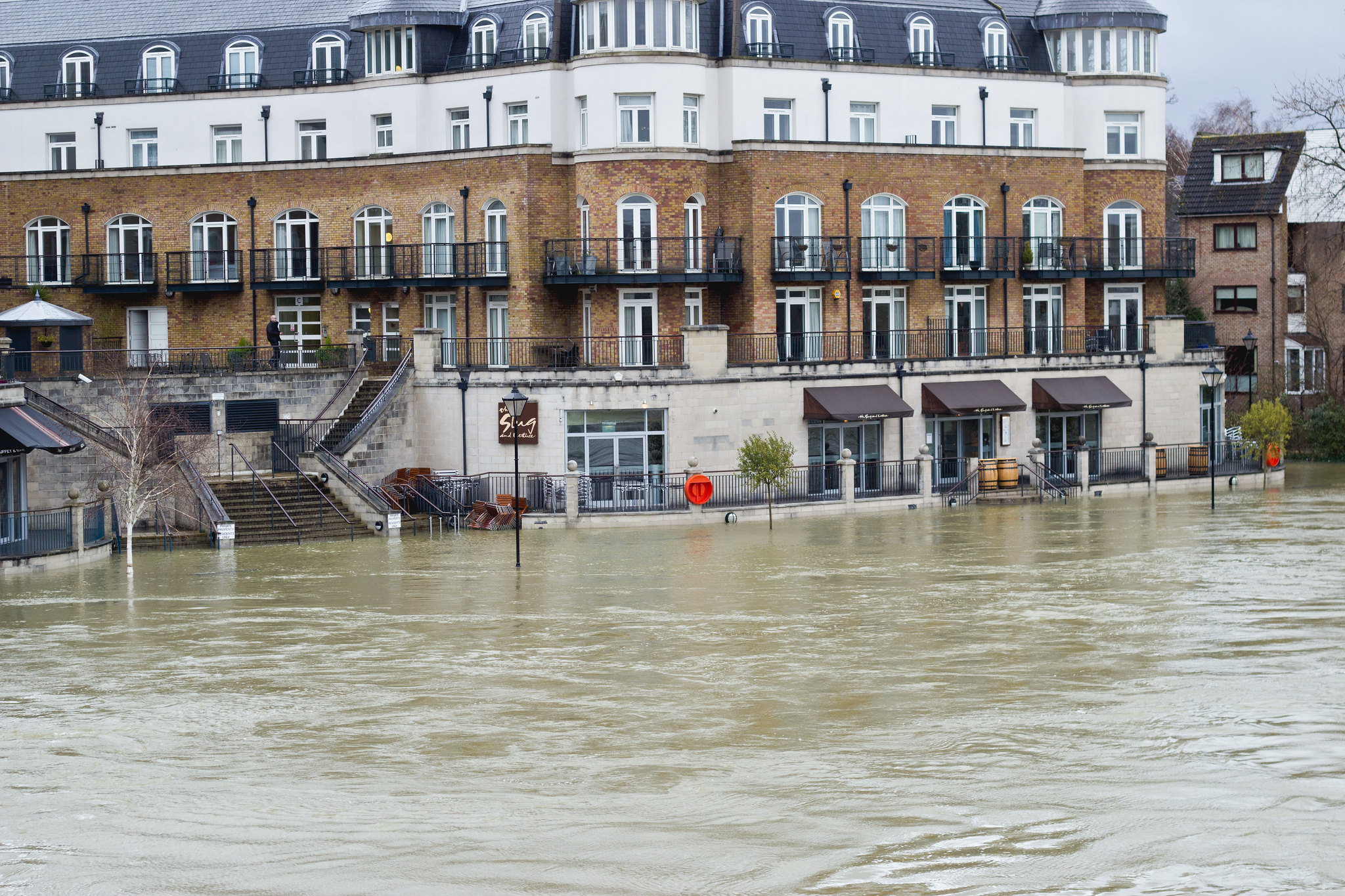Study says seven in every eight UK organisations unprepared for impacts of climate change

The vast majority of organisations in the United Kingdom are unprepared for the extreme weather disruption that climate change is bringing.
Only one in eight (12%) have comprehensively assessed the risks of extreme weather disruption, and only 1 in 6 (16%) have a plan for adapting to future climate change. This is despite three in five (58%) respondents saying their organisation had been affected by the impact of extreme weather events in the last three years. Flooding tops respondents’ fears of disruption by weather and climate-related events.
This is according to a study of 2400 people carried out by the ESRC Centre for Climate Change Economics and Policy at the University of Leeds and London School of Economics and Political Science (LSE).
Individuals were surveyed between April and May 2021 at organisations, the majority (69%) of which are in the private sector, and including businesses, public health authorities, local authorities, public educational establishments, and third sector or charitable organisations, from across all four UK nations. The people surveyed had roles related to organisational planning.
Almost nine in ten (88%) respondents felt that the national government should have full or partial responsibility for managing the effects of climate change. Three in five (57%) believed the government should provide more information about the effects of climate change in the UK, and just over half (54%) indicated that the government should provide funding, subsidies or tax breaks to help them adapt to the changing climate and increased risk of extreme weather.
The top reason why organisations were not yet adapting to the physical risks of climate change was insufficient financial resources (chosen by 45%). Other barriers included: complacent organisational or staff attitudes towards climate change; difficulty identifying effective measures; lack of access to, or awareness of, new technologies; and not considering adaptation a priority/other matters taking higher priority/having competing priorities.
Professor Suraje Dessai, a co-author of the study and a member of the ESRC Centre for Climate Change Economics and Policy at the University of Leeds, said: “Our survey respondents told us that they are looking for the UK Government to provide leadership on this issue, in the form of information-provision, funding, subsidies and tax breaks to help them make plans to adapt to a changing climate, with more extreme weather events.
“Recent extreme weather events including flooding across Europe and wildfires in the United States are demonstrating that this is a problem which is not going to disappear. In fact it will ramp up as global temperatures do.”
The survey found that 16% of organisations have an adaptation plan, while a further 37% said their organisation were developing one. A majority (64%) of those with plans said that it was their first one.
The three weather-related extremes of most concern to organisations in the 2021 survey were “a heavy downpour causing localised flooding” (66%), “severe flooding at the nearest coastline” (50%), and “an intense heatwave lasting a week” (47%).
The effects of climate change on the UK were ranked fifth (with 58% of people choosing it) out of 11 issues across all UK nations and sectors as a concern faced by organisations. The issue of Brexit was just behind it in sixth place, and was identified by 57% of people. The top-ranking concern was the Covid pandemic (83%).
Professor Declan Conway, a co-author of the study and Co-Director of the ESRC Centre for Climate Change Economics and Policy at the LSE, said: “The results of our study are surprisingly stark. We have found that the vast majority of organisations in the private, public and third sectors are unprepared for the kinds of extreme weather which will become more common as the climate crisis intensifies.
“There is real concern about the impacts of climate change, but the people we interviewed told us that financial obstacles prevented them from being able to prepare.”
Dr Denyse Dookie, a member of the ESRC Centre for Climate Change Economics and Policy who contributed to the study at the LSE, said: “These findings have the potential to help both researchers and policy-makers attend to the pressing issues of preparedness for adaptation to climate change in the UK, and encourage the design and implementation of future surveys for us to better understand the changing needs of local organisations.”
The report suggests that organisations with a cross-cutting role, such as the Adaptation Committee of the UK’s Climate Change Committee or the Confederation of British Industry, could promote the coordination of periodic surveys. These could be harmonised with regular review processes, including the UK Climate Change Risk Assessment and the Adaptation Reporting Power, and disclosure efforts such as Carbon Disclosure Project and the Task Force on Climate-related Financial Disclosures .
This report presents the headline findings from a national survey of UK-based organisations’ perceptions about adapting to a changing climate. The ‘PREPARE-3’ survey follows earlier surveys in 2010 and 2013 commissioned by the Department for Environment, Food and Rural Affairs (PREPARE-1 and PREPARE-2, respectively). PREPARE stands for Programme of Research on Preparedness, Adaptation and Risk.
More information
The study, Organisational preparedness for the physical risks of climate change in the UK, was authored by Suraje Dessai, Denyse S. Dookie, and Declan Conway.
Image: “UK Floods, Staines-upon-Thames, promenade” by bayerberg is licensed under CC BY-SA 2.0
